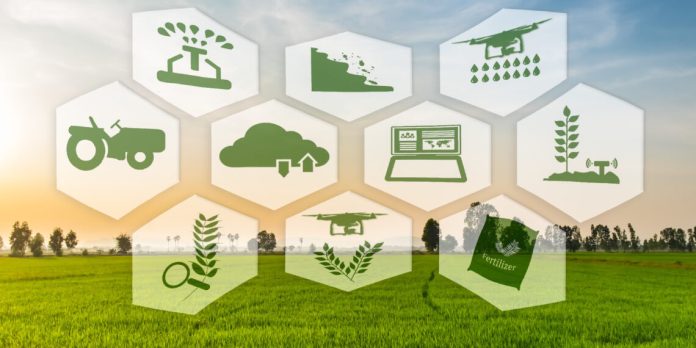Agriculture Industry in India is not just a means of sustenance; it’s a way of life that has sustained the nation for centuries. With a diverse climate and a rich agricultural tradition, India is one of the world’s leading agricultural nations. This sector doesn’t only provide food but also a plethora of opportunities for economic growth. The agro-based industries in India play a significant role in shaping the economy. In this blog, we will explore the top 10 agro-based industries in India, their growth and opportunities.
Agriculture Industry in India:
- Agriculture’s Historical Significance: Agriculture has been the backbone of the Indian economy for ages. It is deeply ingrained in the country’s heritage and culture. India’s agriculture is not limited to growing grains and vegetables; it includes a wide range of products, both traditional and modern.
- Diversity of Agricultural Products: India is a country of diverse climates, allowing for a wide variety of crops. These include rice, wheat, pulses, cotton, jute, tea, sugarcane, and more. The country is also a major producer of fruits like mangoes, bananas, and citrus fruits.
- Role in Employment: Agriculture is the largest employer in the country, providing livelihood to over 50% of the population. It sustains not only the farmers but also the vast network of individuals involved in related industries.
- Challenges Faced: Despite its historical significance, the top 10 agro-based industries in India faces challenges such as outdated farming practices, lack of modern technology, and issues related to land ownership and water resources.
Also Read: PS Gahlaut: AgriTech Startups Will Transform the Farming Landscape
Top 10 Agro-based Industries in India: Growth and Opportunities:
Over the years, the Agro-based industries in India has evolved and expanded, offering numerous opportunities for growth and innovation. Let’s explore the top 10 agro-based industries that are thriving in this sector:
1. Food Processing Industry:
Significance: The food processing industry is crucial for reducing post-harvest losses and adding value to agricultural products. It encompasses various segments such as fruit and vegetable processing, dairy, meat, and grain processing.
Growth and Opportunities: India is witnessing a surge in demand for processed food due to changing lifestyles and urbanization. There are opportunities for entrepreneurs in areas like ready-to-eat meals, packaged snacks, and frozen foods. Government initiatives such as ‘Make in India’ and ‘Food Processing Industry Policy’ have further bolstered the growth of this sector.
2. Dairy Industry:
Significance: India’s dairy industry is the largest in the world, driven primarily by the vast network of milk-producing farmers. The industry includes milk processing, milk-based products, and the establishment of cooperatives.
Growth and Opportunities: There’s a growing demand for milk-based products like yogurt, cheese, and butter. The expansion of organized retail and increased awareness about health benefits are driving this industry. Entrepreneurs can explore setting up dairy farms or processing units to cater to this demand.
3. Horticulture and Floriculture:
Significance: Horticulture includes the cultivation of fruits, vegetables, and spices, while floriculture deals with the production of flowers for both domestic and international markets.
Growth and Opportunities: India’s export of horticultural products is steadily increasing. Technology-driven farming, greenhouse cultivation, and improved logistics have opened up export opportunities. The government’s ‘National Horticulture Mission’ has been instrumental in promoting this sector.
4. Fisheries and Aquaculture:
Significance: India’s vast coastline and numerous inland water bodies provide a fertile ground for fisheries and aquaculture. It’s a significant source of livelihood for coastal communities.
Growth and Opportunities: With increasing health-consciousness, there’s a growing demand for seafood. Sustainable practices, export opportunities, and the development of aquaculture are contributing to the growth of this sector. Government schemes like ‘Blue Revolution’ are fostering this industry.
5. Sugar Industry:
Significance: India is one of the largest producers of sugarcane in the world. The sugar industry plays a pivotal role in providing employment opportunities in rural areas.
Growth and Opportunities: The sugar industry in India has transformed from being just sugar producers to integrated agribusiness companies. Distilleries, cogeneration plants, and ethanol production are expanding, providing diversified revenue streams. Sugar mills are also working on sustainable practices to manage by-products effectively.
6. Tea and Coffee Industry:
Significance: India is renowned for its tea and coffee plantations. These industries have a rich history and are significant contributors to the country’s exports.
Growth and Opportunities: The demand for Indian tea and coffee, both domestically and internationally, is increasing. Specialty teas and single-origin coffees are gaining popularity. Opportunities exist for small growers, organic production, and value addition through processing and branding.
7. Cotton Textile Industry:
Significance: Cotton cultivation and textile production play a crucial role in India’s economy. The textile industry provides employment to a large workforce, especially in rural areas.
Growth and Opportunities: Modernization of textile manufacturing, eco-friendly practices, and niche product development have opened up avenues for growth. The “Make in India” campaign has encouraged investments in the textile sector, which, in turn, have led to increased production and exports.
8. Spice Industry:
Significance: India is renowned as the “Land of Spices.” The country produces a wide range of spices used in global culinary applications.
Growth and Opportunities: India is the world’s largest producer and exporter of spices. The spice industry benefits from strong global demand for Indian spices. Improved post-harvest practices, quality control, and branding can lead to higher value addition and export revenues.
9. Poultry Industry:
Significance: The poultry industry is integral to the Indian diet. Poultry products, especially chicken, are affordable sources of protein.
Growth and Opportunities: Increased demand for poultry products, especially in urban areas, is driving the expansion of this industry. There is scope for integrating modern technology, including automated poultry farming, and sustainable practices to ensure animal welfare.
10. Agrochemicals and Fertilizers:
Significance: Agrochemicals and fertilizers support agriculture by providing necessary inputs for crop protection and enhancement.
Growth and Opportunities: The need for sustainable farming practices is driving the demand for eco-friendly agrochemicals and organic fertilizers. Innovations in biopesticides, precision agriculture, and balanced nutrient management are areas with potential growth.
Top 10 Agro-based Industries in India is a testament to the country’s resilience and rich traditions. As it continues to evolve, these agro-based industries present not only economic opportunities but also the chance to address some of the country’s most pressing challenges, such as employment, modernization, and food security. With the right policies, investments, and innovations, Top 10 agro-based industries in India is poised for a promising future, both for the nation and those engaged in its numerous related industries.
🔥391








